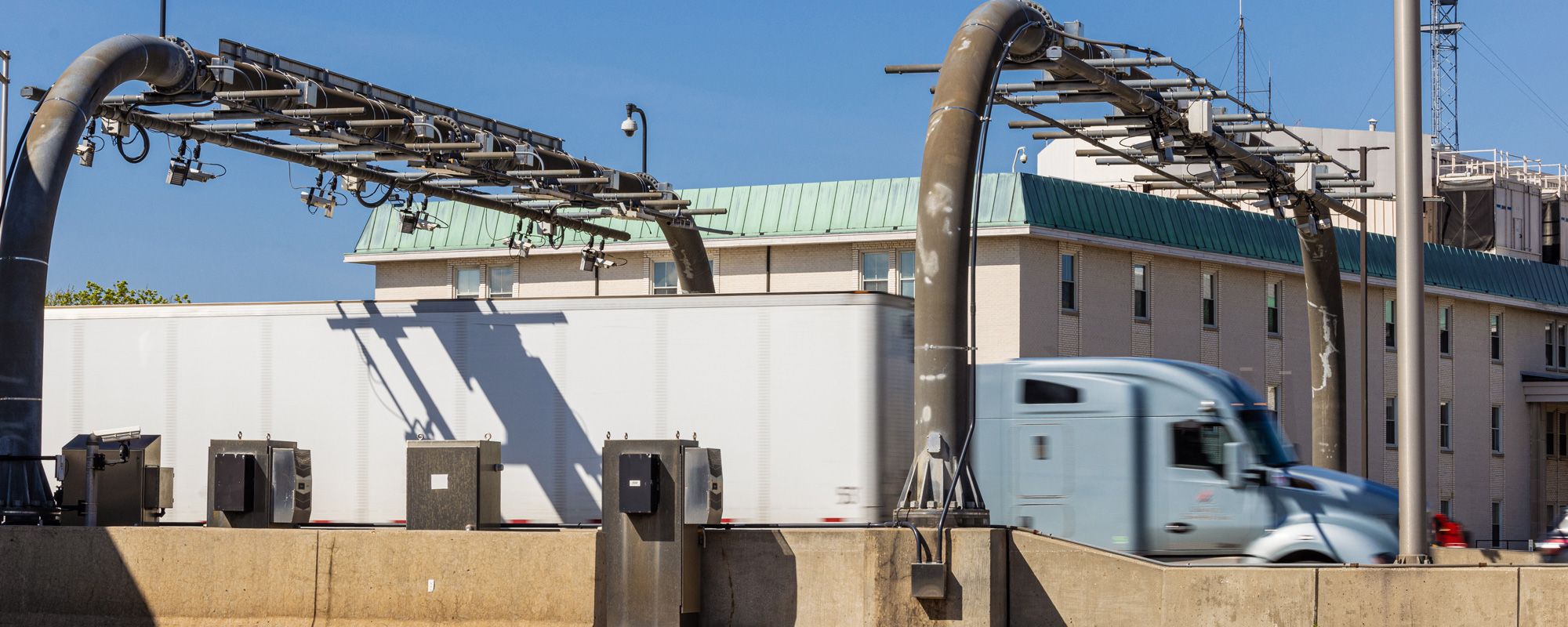
How Fleets Can Save Money: Complete Guide
Jump To: Fleet Audits | Preventative Maintenance | Optimizing Route & Fuel Expenses | Toll Violations & Citations | Toll Management Solutions
If you own, operate, or manage a trucking fleet, you're probably seeking ways to cope with spiraling costs. Fleet maintenance costs have increased by 3.7% during the fourth quarter of 2021 and were 10% higher overall than the previous year, a significant burden for even the most financially resilient businesses..
Escalating fuel prices are having an even more dramatic impact on fleet costs. Over two months in the spring of 2022, diesel prices jumped by an astounding $1.50 per gallon, reaching a national average of $5.62. Some areas saw the price exceed $6 per gallon.
Trucking operations like yours can implement several solutions to reduce fleet expenses and remain competitive and profitable in a challenging marketplace.
Audit Your Fleet's Performance
Fleet managers sometimes make the mistake of assuming they have a complete understanding of their trucking costs and that their spending is well-controlled. However, companies that struggle to adhere to their operating budgets often lack effective fleet cost monitoring. This oversight can lead to the disappearance of thousands of dollars, seemingly vanishing into thin air.
You can gain better control over your budget and monitor your fleet costs more efficiently by calculating the total cost of ownership (TCO). This metric encompasses not only the purchase price of an asset but also its operational costs. Through TCO calculations, you can accurately assess the expenses associated with running your trucking fleet and pinpoint potentially problematic assets, allowing for corrective measures to be taken.
In many instances, a TCO-based audit reveals minor issues that can be relatively straightforward to rectify. Once the necessary adjustments are made, you can track the results and observe the impact on your operating costs. Positive outcomes often materialize swiftly when employing this approach.
Prioritize Preventive Maintenance
The average cost of a truck repair in 2020 was $411, marking an 18% increase compared to the previous year. If it appears that your trucks are frequently in the repair shop, you might be overspending on repairs. Additionally, a truck that's out of commission can't fulfill its role in delivering goods to your customers.
Adhering to timely maintenance schedules can effectively curtail fleet management costs by averting numerous costly repairs. Here are the key areas to prioritize.
Adhering to Appropriate Maintenance Intervals
Manufacturers typically recommend carrying out 'dry' maintenance every 10,000 to 25,000 miles. This type of maintenance involves tasks such as inspecting major components, replenishing fluids, lubricating parts, and checking tire pressure. On the other hand, 'wet' maintenance, which includes oil and filter changes along with other services, should take place every 25,000 miles.
Preparing for Unexpected Repairs and Breakdowns
Even meticulously maintained trucks can still encounter mechanical failures necessitating repairs. Therefore, it's essential to allocate funds to address these occurrences. Among the most prevalent issues are problems with the clutch, cooling system, and charging system.
Maintaining Tires
Tires account for roughly 3% of a truck's operating expenses. Implementing proper and timely tire maintenance can extend the intervals between replacements, enhance fuel efficiency, and contribute to driver safety.

Optimizing Fleet Routes and Fuel Expenses
Another way to reduce trucking fleet costs is to set up more efficient delivery routes by eliminating unnecessary miles. Route optimization software is available to automate the planning process, allowing dispatchers to streamline routes. These software algorithms often yield more accurate results compared to manual route planning methods. Additionally, the data generated by these systems can offer insights for daily operations and the development of fuel-efficient fleet management strategies.
Fleet managers can also take further measures to lower fuel consumption and its associated costs:
- Driver Training: Train your drivers to adopt fuel-saving habits while on the road. Discourage practices such as aggressive driving, rapid acceleration, hard braking, and excessive idling.
- Proper Vehicle Maintenance: Regular servicing ensures trucks operate more efficiently, leading to reduced fuel consumption.
- Optimize Size and Weight: Shifting to smaller, lighter vehicles can notably cut fuel consumption and costs. Trailers constructed with aluminum bodies can achieve weight reduction without compromising strength or durability.
- Utilize Fuel Cards: Issuing company fuel cards facilitates monitoring and tracking of fuel expenses. Many of these cards offer cost-saving discounts and additional benefits.
How to optimize your fleet's routes and fuel expenses
Reduce Toll Violations and Citations
Trucking companies and owner-operators pay approximately $4.2 billion in tolls annually. Toll violations and citations
introduce additional, and avoidable, costs to businesses. Violations can stem from various factors. Some drivers mistakenly employ company-issued transponders, designed to identify and record trucks as they pass through toll lanes or gantries, on their personal vehicles—resulting in extra expenditures.
Trucking companies frequently encounter challenges in correctly classifying their vehicles, which can result in inflated rates. For instance, when a business categorizes a truck as having five axles instead of the actual seven, it must compensate for this discrepancy. Such errors can swiftly accumulate significant costs, especially across large fleets with multiple vehicles.
Instances of violations might also arise when toll facility operators are unable to identify a truck's transponder or license plate. In such cases, the authority may resort to cross-referencing DMV records within the applicable state for a match, subsequently transferring this expense to the trucking company.
To mitigate these and other unnecessary toll-related expenses, trucking fleets must enforce stringent measures.
What are toll violations and how to manage them
Use a Toll Management Solution
Employing the right technology is paramount to avoiding expensive toll violations and citations. An advanced toll management system offers a proactive solution for fleet tolling. This system guarantees data accuracy, streamlines payments, and ultimately saves users time and money. Furthermore, it identifies opportunities to minimize toll expenses and provides valuable insights into how tolls affect your fleet.
Bestpass serves the toll management needs of 70 of the top 100 trucking fleets in the United States. Get coast-to-coast coverage for your fleet, simplifying management by providing one bill under a single point of contact. We can provide a customized toll solution featuring a business-specific transponder plan encompassing deployment, tracking and assignment. Our programs also include toll-by-plate coverage to reduce violations and online reporting accessibility.
Bestpass toll management solutions are designed to effectively prevent transponder abuse. By utilizing our services, you can establish exclusion zones that will promptly notify you of any attempts to execute toll transactions at unusual times. Additionally, we provide both roof- and license plate-mounted transponders, which are difficult to transfer to other vehicles.
Learn More About Ways to Reduce Fleet Costs
Is finding viable solutions to reduce fleet costs a priority for your trucking company? Are you an owner-operator looking for ways to minimize expenses?
The Bestpass team is ready to help. Contact us for more information today. If your fleet consists of at least six vehicles, you can also sign up for our toll management solutions.


